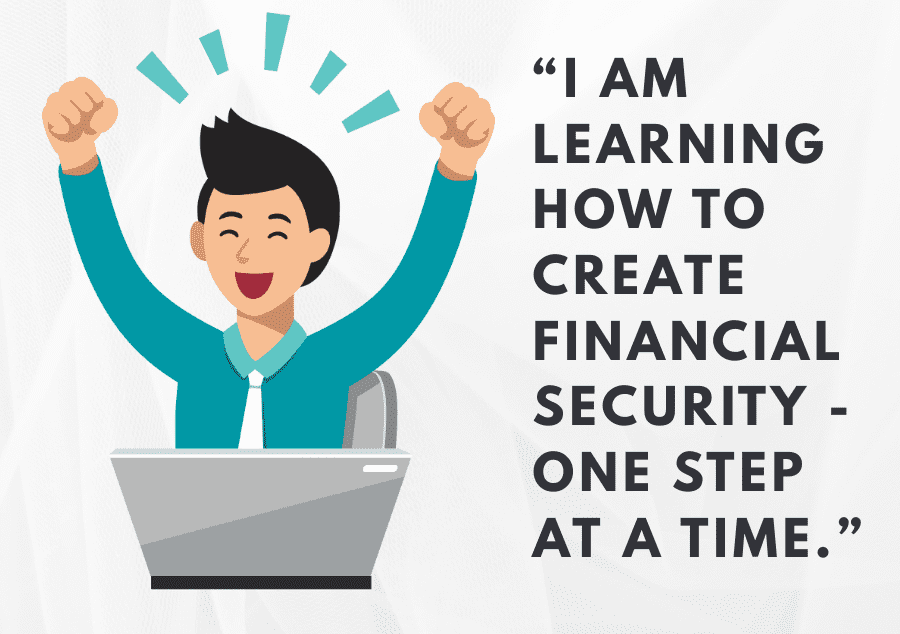
Black Friday & Cyber Monday: How to Shop Smart Without the Guilt
It’s that time of year again – Black Friday and Cyber Monday are just around the corner, and the pressure to snag a deal (or ten) is real. From midnight doorbusters to “limited-time-only” online sales, it can feel like you’re missing out if you’re not buying something. But here’s the thing: just because it’s on sale, doesn’t mean it belongs in your cart, or your budget.
This year, let’s flip the script. Instead of impulse-buying things you don’t need, let’s shop with clarity, purpose, and zero guilt. Here’s your step-by-step guide to mastering mindful spending during the biggest shopping weekend of the year.
Step 1: Start With a Plan (and a Budget/Spending Plan)
Before the sales start flying, get crystal clear on two things:
- What you actually need or plan to buy
- How much you can realistically spend
Make a list of:
- People you’re buying gifts for
- Items you need for your home or business
- Specific products you’ve been saving up for
Next, assign a dollar amount to each item and stick to it. Black Friday and Cyber Monday should be about strategic savings, not spontaneous splurges.
Step 2: Use the 24-Hour Rule (Yes, Even on Black Friday)
Impulse buying is a budget’s (spending plan’s) worst enemy, especially when a timer is counting down next to that tempting “Buy Now” button. The antidote? The 24-hour rule:
If you didn’t plan to buy it ahead of time, give yourself 24 hours to think it over. If it’s still a “heck yes” tomorrow and it fits your budget, go for it. If not, skip it and keep your money for something that matters more.
Not practical for flash sales? Use a mini-version: step away for 15 minutes, do something non-shopping related, and check in with yourself.
Step 3: Price Check Like a Pro
Don’t assume that every Black Friday or Cyber Monday deal is a real bargain. Use tools like:
- CamelCamelCamel: Tracks Amazon price history
- Honey or Rakuten: Automatically finds coupon codes and cashback options
- Google Shopping: Compare prices across multiple retailers
Also, check the item’s price history. Some retailers inflate “regular” prices to make the discount look more impressive. Knowledge is power, and a little research can save you from fake savings.
Step 4: Shop With Purpose, Not Pressure
Retailers use urgency and FOMO (Fear of Missing Out) to trigger impulse buys:
- “Only 3 left!”
- “Ends in 1 hour!”
- “Everyone is buying this right now!”
Instead of reacting to these triggers, pause and ask:
- Did I plan for this?
- Does this align with my values and budget?
- Will this purchase add real value to my life or someone else’s?
Remind yourself that sales come around again. Missing one deal isn’t the end of the world.
Step 5: Set Digital Boundaries
Let’s be real: your inbox and social feeds are about to explode with ads.
Stay in control by:
- Unsubscribing from marketing emails you don’t need
- Turning off notifications for shopping apps
- Blocking distracting websites during peak sale hours
- Using a shopping-specific email address to keep sales away from your daily inbox
You don’t need to know about every sale. You just need to know the ones that matter to you.
Step 6: Pay With Intention
How you pay matters. Choose methods that keep you accountable:
- Cash or prepaid debit cards: When the money’s gone, it’s gone.
- Credit cards: Use only if you have the cash to pay it off right away
- Buy Now, Pay Later (BNPL): Only use if it’s part of your budget plan, don’t let it stretch your spending
Every purchase should fit into your overall holiday budget. If it doesn’t, it’s not worth the stress.
Step 7: Focus on Quality Over Quantity
A good deal isn’t good if the item is poor quality, breaks quickly, or doesn’t get used. Instead of buying 10 mediocre things because they’re cheap, invest in one or two high-quality items that will last. You’ll spend less over time, and you’ll avoid cluttering your home with stuff you don’t love.
Ask yourself:
- Will I (or the recipient) still want this next year?
- Does this replace something that no longer works or is needed?
Step 8: Support Local and Ethical Brands
Black Friday doesn’t have to be about mega-retailers. Consider using the weekend to:
- Shop small businesses in your area or online
- Support ethical and sustainable brands that align with your values
- Buy from makers and creators on platforms like Etsy or local markets
You’ll still find deals, but your dollars will go further by supporting real people and communities.
Step 9: Reflect Before You Checkout
Before hitting the final “Buy Now” button, do a quick internal check-in:
- Is this in my budget?
- Did I plan to buy this?
- Am I buying this for the right reason?
- Is this adding value to my life?
Taking just 30 seconds to pause can prevent buyer’s remorse and protect your financial peace.
Step 10: Celebrate Your Wins (Not Just Your Hauls)
It’s easy to brag about how much you saved on a big-ticket item. But you know what’s even better? Celebrating that you:
- Stuck to your budget
- Avoided impulse purchases
- Focused on meaningful gifts
- Supported businesses you believe in
This is what financial empowerment looks like. It’s not about deprivation – it’s about making choices that feel good now and later.
Final Thoughts: Guilt-Free Shopping Starts With You
Black Friday and Cyber Monday are opportunities, not obligations. You get to decide what matters, how much to spend, and when to say no. Shopping smart isn’t about missing out; it’s about tuning in to your values, your goals, and your peace of mind.
So this year, skip the guilt and shop with confidence. Your wallet – and your future self – will thank you.




















